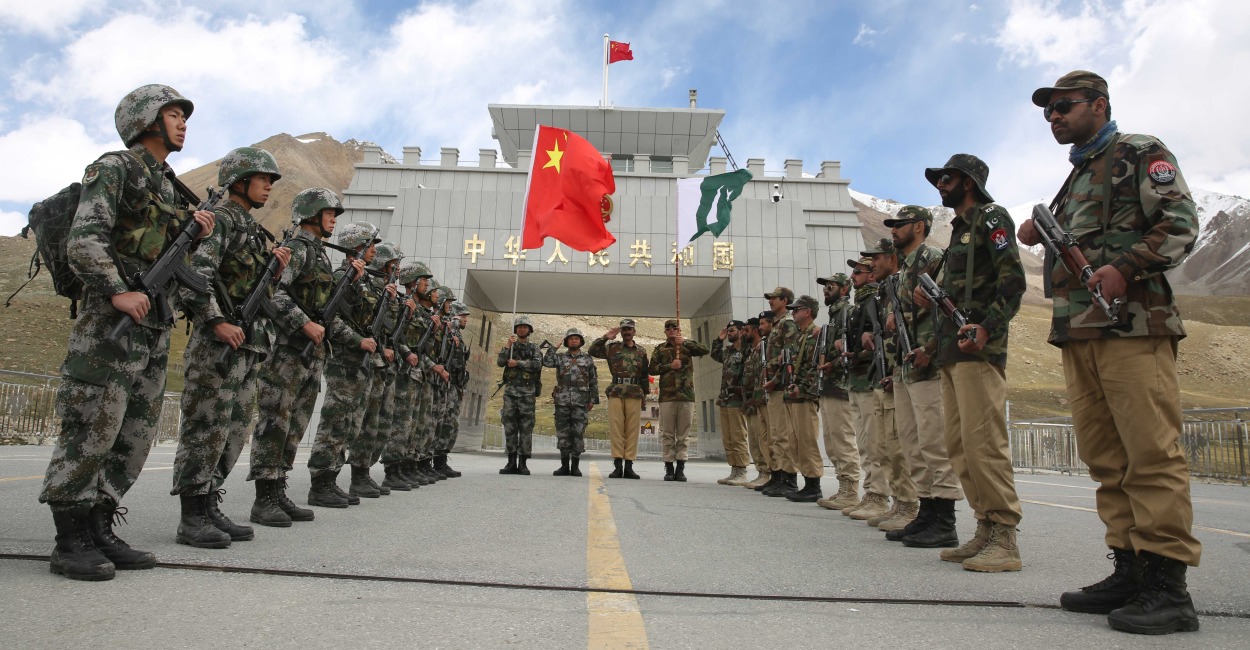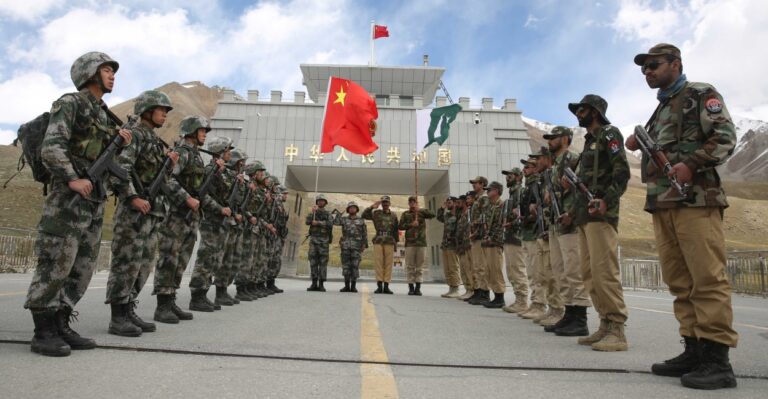new The Pakistani government has approved a “revitalized” counter-terrorism operation (Azm-i-Istekam) to halt the rise in attacks against Chinese nationals in the country, but the attacks have infuriated Beijing and made it hesitant to inject more capital into its South Asian ally.
Kargil War 25 Years On: How India Used the ‘World’s Fastest’ Jet, the MiG-25 Foxbat, to Gain an Edge Over Pakistan
The operation, codenamed “Azmi Istekam”, is seen as a sign of the country’s determination to root out extremism.
The campaign was launched with the support of all stakeholders, including Gilgit-Baltistan and Azad Jammu and Kashmir (Pakistan-administered Kashmir), during a meeting of the Central Supreme Committee of the National Action Programme (NAP) chaired by Prime Minister Shehbaz Sharif, Dawn News reported.
“Azmi Istekam will integrate and synergize multiple efforts to counter the threat of extremism and terrorism in a comprehensive and decisive manner,” the Prime Minister’s Office (PMO) said in a press release earlier this week.

“Azmi-Istekam is a national vision of multifaceted cooperation between various security agencies and the entire national system,” he said. “To this end, the IBOs (intelligence-based operations) that are already being implemented will be [launching] “A new organized armed operation”
This operation will include strengthening the efforts of the Pakistani military with the support of all law enforcement agencies as well as enacting appropriate legislation to plug legal loopholes that hinder the effective prosecution of terrorism-related crimes.
However, the new plan has reportedly been opposed by opposition parties in the country. Pakistan Tehreek-e-Insaf (PTI), Jamiat Ulama-e-Islam Fazl (JUI-F) and Awami National Party (ANP) are among the opposition parties that have rejected the plan both inside and outside parliament, stating that any decision should be taken in consultation with parliament.
Concerns were stirred shortly after the prime minister announced a renamed operation to root out extremism and terrorism from the country, with opposition parties fearing the new operation will lead to mass displacement of people, just like similar operations carried out by the government in the past.
The protests prompted Pakistan’s prime minister to act the next day, assuring the opposition that Operation Azm-i-Istekam was an enhancement to an ongoing intelligence operation and not a “new coordinated” military attack.
“Large-scale militant operations require evacuation. It is a mere misunderstanding that such operations will be launched under the Azmi Istekam initiative,” the prime minister also said.
“Previous military operations have been carried out to physically dislodge terrorists from known locations, but [became] “These operations encroached on the exclusion zone and undermined state authority. These operations required the mass evacuation of local residents and the systematic clearance of affected areas.”
The statement added that “as such areas no longer exist within the country and previous physical operations have conclusively degraded the ability of terrorists to carry out large-scale coordinated operations inside Pakistan, no large-scale military operation that would require the evacuation of population is being considered.”
But these assurances have had little effect, as evidenced by fierce criticism from the opposition and its supporters. On June 26, Mahmood Khan Achakzai, leader of the opposition coalition Tahreek-e-Tahaffuz Ain Pakistan and Pakhtunkhwa Milli Awami Party, warned that they would intensify their opposition to Operation Azm-e-Isteqam by appealing to the International Court of Justice (ICJ) if necessary.
Despite the opposition, the Pakistani government appears to be targeting the renovation works to assuage Chinese concerns.

China is feeling angry and anxious
Azm-e-Istekam means “Strong Determination for Stability” or “Strong Commitment to Stability.” This is the 12th large-scale military operation against radical Islamic terrorists since 2007, although there have been other smaller operations.
The government said it had held extensive consultations over the new operation with the National Counter-Terrorism Authority (NCTA), which had drawn up a 20-point NAP to combat terrorism and extremism, which was subsequently approved by parliament on December 24, 2014. The decision at the time came in the wake of a terrorist attack at the Army Public School in Peshawar that left many dead.
But this time, the need to stamp out terrorism is intended to quell Beijing’s concerns that its citizens continue to come under attack. 2024 has seen more violent attacks on Chinese nationals and facilities in both the north and south.
For example, March 2024 was a bloody month in which Chinese interests in Pakistan were the target of at least three attacks.
The militants first attacked Pakistan’s Gwadar port in Balochistan province, built with Chinese backing and which is the centrepiece of Pakistan’s most ambitious infrastructure and investment project in recent years, the multi-billion-dollar China-Pakistan Economic Corridor (CPEC).

Militants then attacked the country’s largest naval air base, PNS Siddique, in Balochistan province, which they said was motivated by Chinese investments in the region.
Then, Chinese engineers working on a Chinese-financed hydroelectric project near the northern Pakistani city of Besham were targeted: on March 26, a suicide bomb attack killed five Chinese engineers and their Pakistani driver.
China, Pakistan’s main ally, is contributing $62 billion to the development of the China-Pakistan Economic Corridor (CPEC). Earlier this month, Foreign Minister Sharif and Pakistan’s Army Chief General Asim Muneer paid a five-day visit to China. In their talks with their Chinese counterparts, both men stressed that protecting China’s interests and people was their primary objective.
According to the Pakistani government, attacks on Chinese nationals in Pakistan are part of a “larger plan” to undermine Pakistan’s economic interests and sabotage relations between the two countries. Facing repeated attacks, Chinese people in Pakistan have not hidden their fears, with some reportedly changing their daily routines for safety.
Indian experts have repeatedly pointed out that the attack is the result of disappointment among those who are not benefiting from the project. China has imposed a condition in the CPEC agreement that Chinese companies and their workers can only carry out certain projects that Chinese companies consider strategic.
These projects have also not contributed to increasing jobs and prosperity for Pakistanis and locals, creating a lot of resentment towards the Chinese.
China, meanwhile, has said it may bring in its own security if it determines Pakistani security services are unable to protect the Chinese workers.
Experts say a slowing economy and financial difficulties have left Pakistan unable to sway China or its investments in the country. The new operations are seen as a move to flush out militants and appease China, which has been vocal about its disappointment with the Pakistani government.

